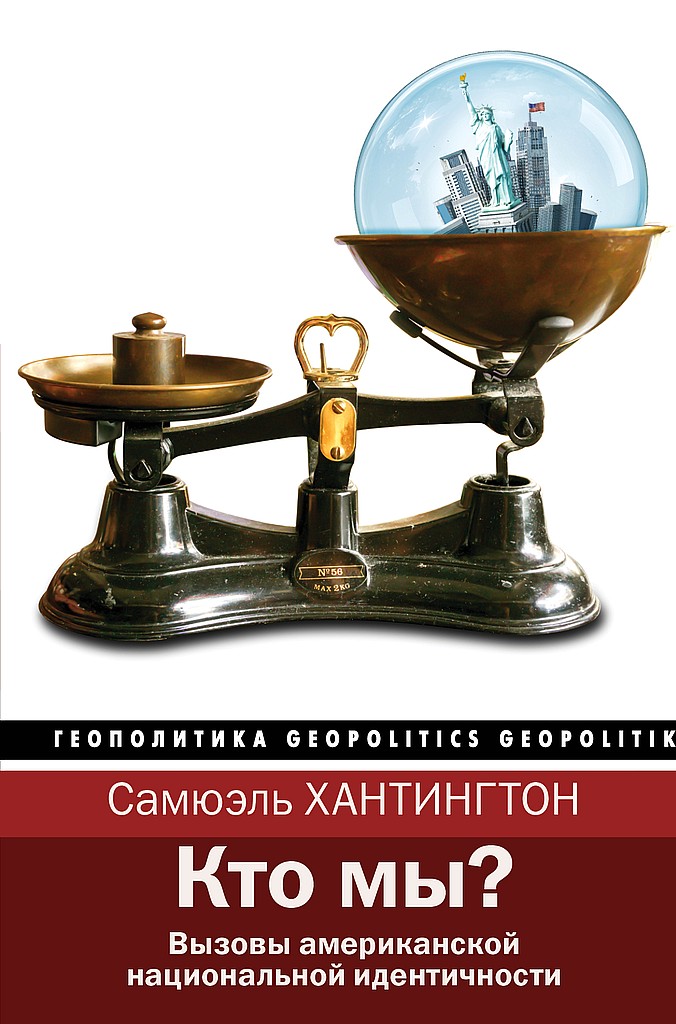Lifeboat: Immigrants and the American Democratic Order (Boulder: Westview Press, 1993), p. 99.
{298} Henri Wéber, quoted in The Economist, 12 February 2000, p. 20.
{299} Oscar Handlin, The Uprooted (Boston: Little, Brown, 2nd ed., 1973) p. 272; Arthur M. Schlesinger, Jr., The Disuniting of America: Reflections on a Multicultural Society (New York: Norton, rev. ed., 1998), p. 17; Harles, Politics in the Lifeboat, p. 4.
{300} Salins, Assimilation, American Style, p. 48–49; Josef Joffe, personal conversation.
{301} Piore, Birds of Passage: p. 149 ff.
{302} Roberto Suro, Strangers Among Us (New York: Knopf, 1998), p. 325.
{303} Washington, Jefferson, Franklin quoted in Matthew Spalding, «From Pluribus to Unum», Policy Review, no. 67 (Winter 1994), p. 39–40.
{304} Gordon, Assimilation in American Life, p. 132–33; Marcus Lee Hansen, The Immigrant in American History (Cambridge: Harvard University Press, 1940), p. 132; Heinz Kloss, The American Bilingual Tradition (Rowley, MA: Newbury House, 1977), p. 128; Will Kymlicka, Multicultural Citizenship (Oxford: Clarendon Press, 1998), p. 28–29.
{305} Samuel Lubell, The Future of American Politics (New York: Harper, 1951), p. 58ff.
{306} New York Times, 9 December 1999, p. 1, 20; 5 March 2000, p. A1, A20; Washington Post, 18 September 1993, p. A1; New York City Department of City Planning, The Newest New Yorkers: 1995–1996: An Update of Immigration to NYC in the Mid ‘90s (8 November 1999).
{307} James Dao, «Immigrant Diversity Slows Traditional Political Climb», New York Times, 28 December 1999, p. A1; John J. Miller, The Unmaking of Americans (New York: Free Press, 1998), p. 218–19; Edward p. Lazear, Culture Wars in America (Stanford: Hoover Institution, Essays in Public Policy, no. 71, 1996), p. 9, citing 1990 census data.
{308} Nathan Glazer, «Immigration and the American Future», The Public Interest, 118 (Winter 1995), p. 51; «Issue Brief: Cycles of Nativism in U. S. History», Immigration Forum, 19 May 2000, p. 1.
{309} Robert William Fogel, The Fourth Great Awakening and the Future of Egalitarianism (Chicago: University of Chicago Press 2000), p. 60; Barry Edmonston and Jeffrey p. Passel, «Ethnic Demography: U. S. Immigration and Ethnic Variations», in Edmonston and Passel, eds., Immigration and Ethnicity (Washington, D. C.: Urban Institute Press 1994), p. 8; Campbell J. Gibson and Emily Lennon, Historical Census Statistics on the Foreign Born Population of the United States, 1850–1990 (Washington: Census Bureau Population Division, Working Paper 29, February 1999).
{310} Richard Alba and Victor Nee, «Rethinking Assimilation Theory for a New Era of Immigration», International Migration Review, 31 (Winter 1997), p. 842–43; Douglas Massey, «The New Immigration and Ethnicity in the United States», Population and Development Review, 21 (September, 1995), p. 645, quoted in Peggy Levitt, The Transnational Villagers (Berkeley: University of California Press, 2001), p. 18.
{311} U. S. Immigration and Naturalization Service, 1999 Statistical Yearbook of the Immigration and Naturalization Service (Washington, D. C.: U. S. Government Printing Office, March 2002), p. 19; U. S. Census Bureau, Statistical Abstract of the United States: 2001, p. 45.
{312} Stephen A. Camarota, Immigrants in the United States—2002: A Snapshot of America’s Foreign-Born Population (Washington: Center for Immigration Studies, Backgrounder, November 2002), p. 1; Boston Globe, 10 March 2003, p. A3, citing William Frey’s analysis of Census Bureau figures.
{313} Frederick Douglass, quoted in Judith N. Shklar, American Citizenship (Cambridge: Harvard University Press, 1991), p. 48, 52.
{314} Ronald Takaki, Double Victory: A Multicultural History of America (Boston: Little, Brown 2000), p. 82.
{315} John Higham, Strangers in the Land (New Brunswick, N. J.: Rutgers University Press, 1988) p. 12ff; Kevin Phillips, The Cousins’ Wars (New York: Basic Books, 1999), p. 543 ff.
{316} John A. Hawgood, The Tragedy of German-America (New York: G. p. Putnam’s Sons, 1940), p. 291–301; Ronald Fernandez, «Getting Germans to Fight Germans: The Americanizers of World War I», Journal of Ethnic Studies, 9 (1981), p. 64–664 Higham, Strangers in the Land, pp, 216 -17.
{317} New York Times, 5 July 1918, p. 1, 6; John J. Miller, «Americanization Past and Future», Freedom Review, 28 (Fall 1997), p. 11.
{318} Nathan Glazer and Daniel Patrick Moynihan, Beyond the Melting Pot (Cambridge: MIT Press, 1970), p. 20; Mary C. Waters, Ethnic Options: Choosing Identities in America (Berkeley: University of California Press, 1990), p. 175.
{319} Michael Walzer, What It Means to Be an American (New York: Marsilio, 1992), p. 49.
{320} Boston Globe, 27 May 2002, p. A1; 15 August 2002, p. A3; 23 November 2002, p. A15.
{321} Miller, The Unmaking of Americans, p. 219–21.
{322} Marilyn Halter, Washington Post Weekly Edition, 24 July 2000, p. 21.
{323} См. Peter Skerry, Mexican Americans: The Ambivalent Minority (Cambridge: Harvard University Press, 1993), passim; and Michael Jones-Correa, Between Two Nations: The Political Predicament of Latinos in New York City (Ithaca: Cornell University Press, 1998) p.5, 69–90.
{324} Miller, The Unmaking of Americans, p. 120, 134–35, 221–23; James R. Edwards and James G. Gimbel, «The Immigration Game», American Outlook, Summer 1999, p. 43; Linda Chavez, «Multiculturalism Getting Out of Hand», USA Today, 14 December 1994, p. 13A.
{325} Mark Krikorian, «Will Americanization Work in America?» Freedom Review, 28 (Fall 1997), p. 51–52; Rubén G. Rumbaut, Achievement and Ambition among Children of Immigrants in Southern California (Jerome Levy Economics Institute, Working Paper No. 215, November 1997), p. 14–15; Peter Skerry, «Do We Really Want Immigrants to Assimilate?» Society, 37 (March-April 2000), p. 60, citing University of California Diversity Project, Final Report: Recommendations and Findings (Berkeley: Graduate School of Education, 2000).
{326} Fernando Mateo, quoted in New York Times, 19 July 1998, p. 1; Levitt, Transnational Villagers, p. 3–4, 239–40; Jones-Correa, Between Two Nations, p. 5–6, 191–93; Robert S. Leiken, The Melting Border: Mexico and Mexican Communities in the United States (Washington, D. C.: Center for Equal Opportunity, 2000), p. 4–5.
{327} Suro, Strangers Among Us, p. 124.
{328} Levitt, Transnational Villagers,



